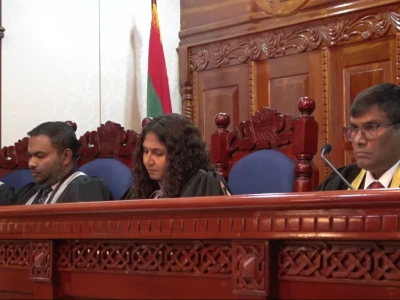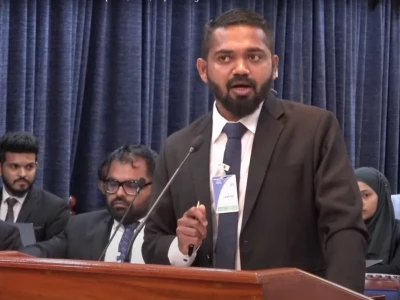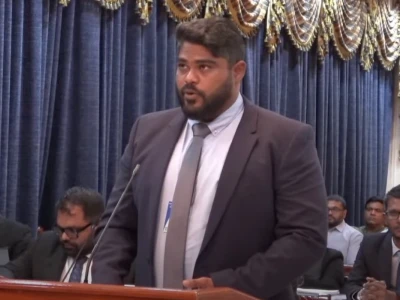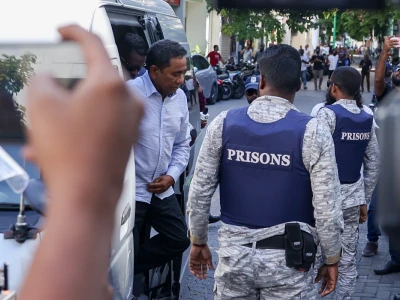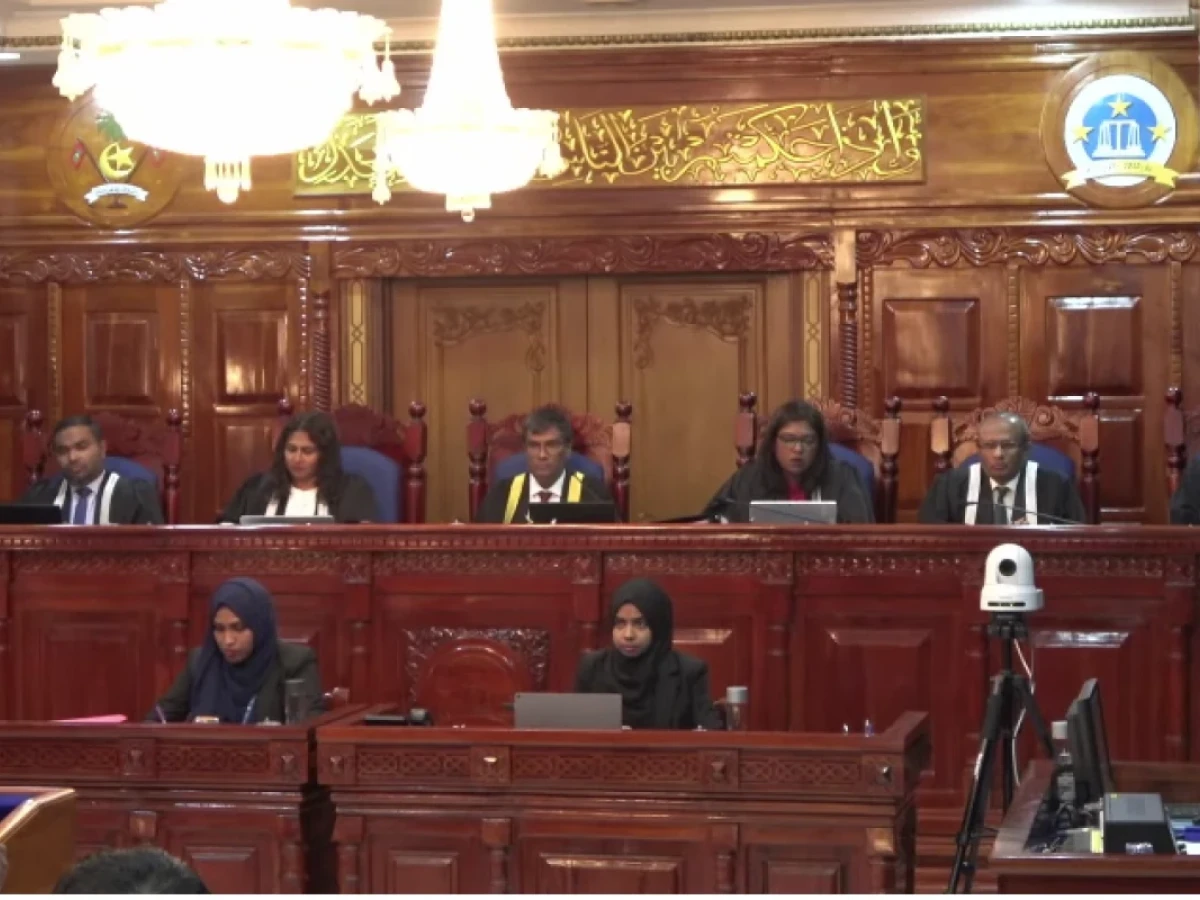
Law can't be interpreted to allow criminal to run for office, SC rules
"It is my duty to uphold that principle in order to uphold the dignity of the constitution and the mindset of the assembly that drafted it”.
Top Stories
By
Fathmath Ahmed Shareef
The Supreme Court on Sunday ruled that the constitution cannot be interpreted in such a way that people serving jail sentences can run for president and the courts have no power to alter any qualifications a candidate must possess.
Former President Abdulla Yameen had filed his candidacy on the PPM ticket. He was sentenced to 11 years in prison and fined USD 5 million for accepting bribes and money laundering.
The deadline for payment of the fine expired in June last year and he did not meet the two conditions of Article 109 of the Constitution.
The Elections Commission (EC) decided not to accept Yameen’s candidacy because he did not meet the two requirements of a presidential candidate:
-
Yameen, who has been convicted of a criminal offence and sentenced to more than 12 months in prison, has not completed the sentence as he did not meet the criteria mentioned in Article 109(f) of the constitution.
-
Yameen's USD 5 million fine imposed after his 11-year sentence has not yet been paid and cleared, and it is clear that he has a proven debt to the state, which does not meet the criteria set out in Article 109(b) of the constitution.
The EC rejected Yameen’s candidacy, and the matter was appealed by Yameen to the Supreme Court, which on Sunday ruled that the EC’s decision was correct.
One of the main arguments raised by Yameen in this case is that the EC has misinterpreted Article 109 of the constitution and, among the grounds for disqualification of a candidate, the word 'convicted' in the law means that he has a final conviction. If the lower court's judgment is subject to appeal, then the provision should be interpreted in such a way that a person in that judgment can contest.
The opinion of Justice Hosnu Suud, in which all the Supreme Court judges agreed, interpreted this provision. According to that view, the rights described in the Rights Chapter of the constitution are not exclusive. These rights may also be restricted and withheld in accordance with the rules set out in the constitution.
Husnu Al Suood said:
-
The wording of Article 109(f) of the constitution was formulated and passed on the grounds that a final judgment is not required for candidates running for public office in connection with pending appeal cases
-
It has come to the notice of the Drafting Committee of the Special Assembly and the entire Special Assembly, which drafted the constitution, that in other countries, the situation has been deemed as exceptional circumstances
-
The constitution does not provide for such an exception because it is the intention of the members of the Assembly to disqualify the person if he is serving a prison sentence
Husnu Al Suood said the minutes of the assembly clearly showed that when the constitution was drafted, the whole Assembly was of the view that those working in public office should not be dishonest and disreputable.
Yameen's side has asked the Supreme Court to remove the definition of the word 'judgment' in Article 109 of the Constitution from the definition of executed judgment and extend it to pending cases within the scope of appeal proceedings. He did say that he does not think that the courts can do that.
“I have previously stated that the courts do not have the power to interpret a word in the constitution in such a way as to change the meaning of an article of the constitution,” Husnu Al Suood said.
"It is my duty to uphold that principle in order to uphold the dignity of the constitution and the mindset of the assembly that drafted it”.
Suood said that article 26 of the constitution, which states that every citizen above the age of 18 years is entitled to contest for various election posts as long as it is not otherwise specified in the constitution, shows that article 109 of the constitution lays down the conditions of a candidate for the post of president. He said it would be evident from the earlier rulings of the court that the courts do not have the power to impose any restrictions on any of the conditions required of a candidate for a post.
While the constitution set out the qualifications for a president, the overall intention of the Special Assembly was that, “once a person is accused and convicted of a serious offence, he is not allowed to hold public office”, the Election Commission said at the hearing on the matter on Friday.
In addition, Justice Dr Azmiralda Zahir raised the question at the Friday hearing about what would happen if Yameen is given the opportunity to contest the presidential election despite being on a sentence.
In response to the question, Yameen's lawyer Hamza Latheef had said that if Yameen wins the presidential election, the Vice President will take over the responsibilities of the government while he is in jail.
